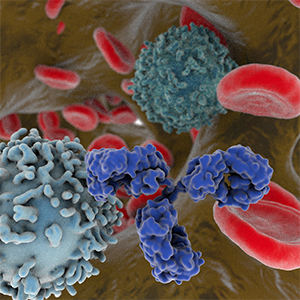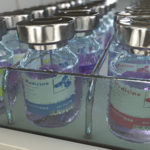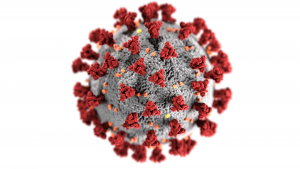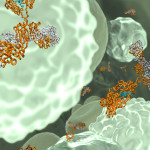 On March 3rd each year, the global community affected by and working to treat triple-negative negative breast cancer (TNBC) comes together to raise awareness of this disease. Like all cancers, breast cancer is heterogenous. The triple-negative form of the disease is characterized by the absence of expression of the estrogen and progesterone receptors and lack of amplification of human epidermal growth factor receptor 2 (HER2) on tumor cells, which makes it particularly difficult to treat. Although only ~10-20% of all breast cancer cases, TNBC is particularly aggressive, and occurs more commonly in women younger than age 40, who are African-American, or who have a BRCA1 mutation. The 5-year survival rate is high (91%) if the disease is localized when first diagnosed, but decreases substantially (to 12%) if the tumor has already metastasized.
On March 3rd each year, the global community affected by and working to treat triple-negative negative breast cancer (TNBC) comes together to raise awareness of this disease. Like all cancers, breast cancer is heterogenous. The triple-negative form of the disease is characterized by the absence of expression of the estrogen and progesterone receptors and lack of amplification of human epidermal growth factor receptor 2 (HER2) on tumor cells, which makes it particularly difficult to treat. Although only ~10-20% of all breast cancer cases, TNBC is particularly aggressive, and occurs more commonly in women younger than age 40, who are African-American, or who have a BRCA1 mutation. The 5-year survival rate is high (91%) if the disease is localized when first diagnosed, but decreases substantially (to 12%) if the tumor has already metastasized.
Due to the lack, or relatively small number, of relevant receptors, TNBC typically does not respond to hormonal therapeutics or agents targeting HER2. Chemotherapy has been the standard of care, although the benefits of this treatment are limited. Recently, however, three monoclonal antibody (mAb) therapies, atezolizumab (Tecentriq, Genentech Inc.), sacituzumab govitecan-hziy (TrodelvyTM, Immunomedics, Inc.), and pembrolizumab (KEYTRUDA, Merck & Co.) were approved by the US Food and Drug Administration (FDA) for TNBC. In addition, numerous other mAbs are in late-stage clinical study for this disease.
Atezolizumab is a humanized IgG1 mAb targeting programmed cell death protein 1 ligand (PD-L1) that was first approved by FDA for treatment of locally advanced or metastatic urothelial carcinoma in 2016. The Fc domain of atezolizumab was engineered by introducing an Asp to Ala change at position 298 in the CH2 domain of each heavy chain. Due to this alteration, the antibody devoid of N-linked oligosaccharides and does not have effector functions. On March 8, 2019, the FDA granted accelerated approval to atezolizumab in combination with paclitaxel protein-bound for adult patients with unresectable locally advanced or metastatic TNBC whose tumors express PD-L1 (PD-L1 stained tumor-infiltrating immune cells [IC] of any intensity covering ≥ 1% of the tumor area), as determined by an FDA-approved test. Approval was based on the placebo-controlled Phase 3 IMpassion130 (NCT02425891) study of 902 patients with unresectable locally advanced or metastatic TNBC who had not received prior chemotherapy for metastatic disease. In patients whose tumors express PD-L1, median progression-free survival was 7.4 months for patients receiving atezolizumab with paclitaxel protein-bound and 4.8 months for those receiving placebo with paclitaxel protein-bound. The objective response rate in patients with confirmed responses was 53% compared to 33% for the atezolizumab and the placebo-containing arms, respectively. Tecentriq is also approved in the European Union for treatment of TNBC.
Sacituzumab govitecan is an antibody-drug conjugate (ADC) comprising a humanized IgG1k antibody targeting TROP-2 fused to the active metabolite of irinotecan (SN-38). On April 22, 2020, FDA granted Trodelvy® an accelerated approval for adults patients with metastatic TNBC who received at least two therapies for metastatic disease. FDA’s approval was based on findings from the pivotal, single-arm clinical trial IMMU-132-01 (NCT01631552) that enrolled 108 previously treated patients with metastatic TNBC. The overall response rate was 33.3% and the median response duration was 7.7 months. Of the patients with a response to sacituzumab govitecan-hziy, 55.6% maintained their response for 6 or more months and 16.7% maintained their response for 12 or more month.
Pembrolizumab is a humanized IgG4 mAb targeting programmed cell death protein 1 (PD-1) that was first approved by FDA for treatment of melanoma in 2014. On November 13, 2020, FDA granted accelerated approval to pembrolizumab in combination with chemotherapy for the treatment of patients with locally recurrent unresectable or metastatic TNBC whose tumors express PD-L1 (CPS ≥10) as determined by an FDA-approved test. FDA’s approval was based on results from the Phase 3 KEYNOTE-355 study (NCT02819518) of patients with locally recurrent unresectable or metastatic TNBC, who had not been previously treated with chemotherapy in the metastatic setting. Median progression-free survival was 9.7 months in the pembrolizumab plus chemotherapy arm and 5.6 months in the placebo arm.
Other ADCs and antibodies that target PD-1 or its ligand (PD-L1) are undergoing evaluation in late-stage clinical study of TNBC patients, including the anti-HER2 ADC trastuzumab deruxtecan (Enhertu); anti-PD-L1 avelumab (Bavencio) and TQB2450; and anti-PD-1 serplulimab and toripalimab. More information about TNBC and antibody therapeutics for this disease can be found in these reviews:
Nagayama A, Vidula N, Ellisen L, Bardia A. Novel antibody-drug conjugates for triple negative breast cancer. Ther Adv Med Oncol. 2020 May 11;12:1758835920915980. doi: 10.1177/1758835920915980.
Won KA, et al. Triple‑negative breast cancer therapy: Current and future perspectives. Int J Oncol. 2020. PMID: 33174058.
Keep up to date on US and EU approvals all year by visiting our website!
The Antibody Society maintains a comprehensive table of approved monoclonal antibody therapeutics and those in regulatory review in the EU or US. The table, which is located in the Web Resources section of the Society’s website, can be downloaded in Excel format.




